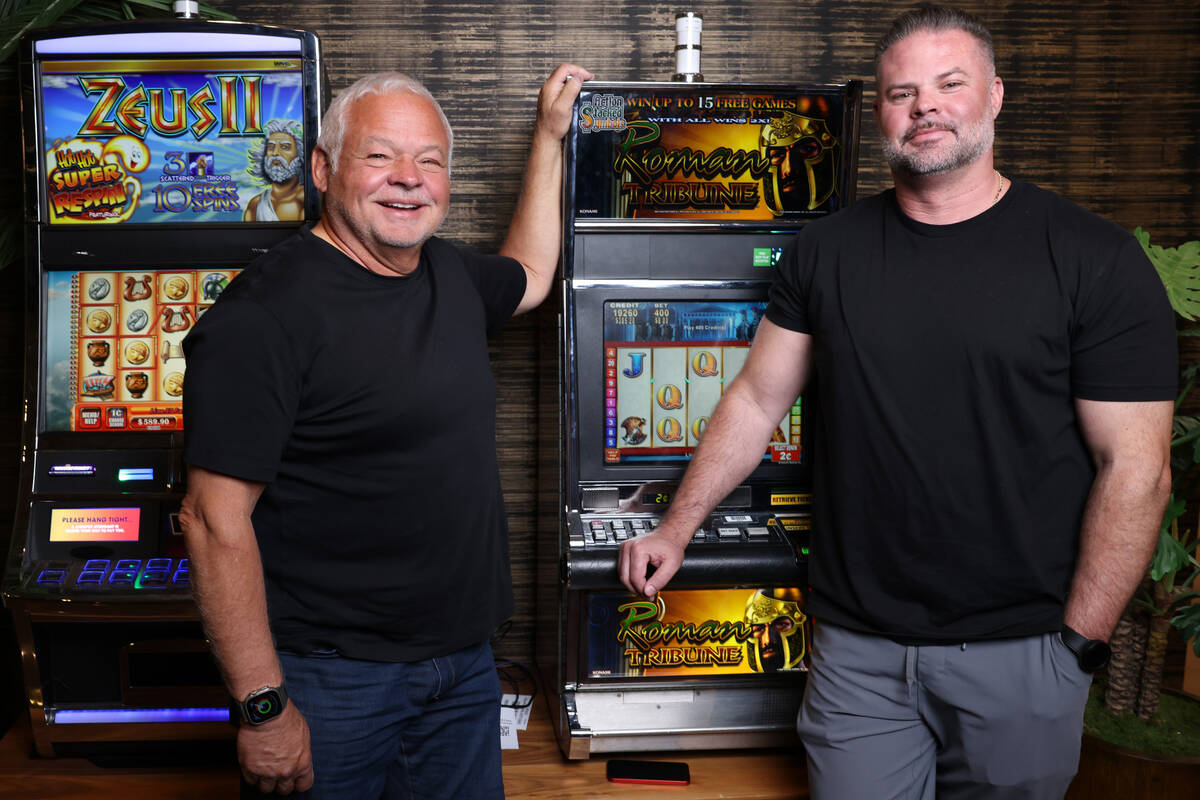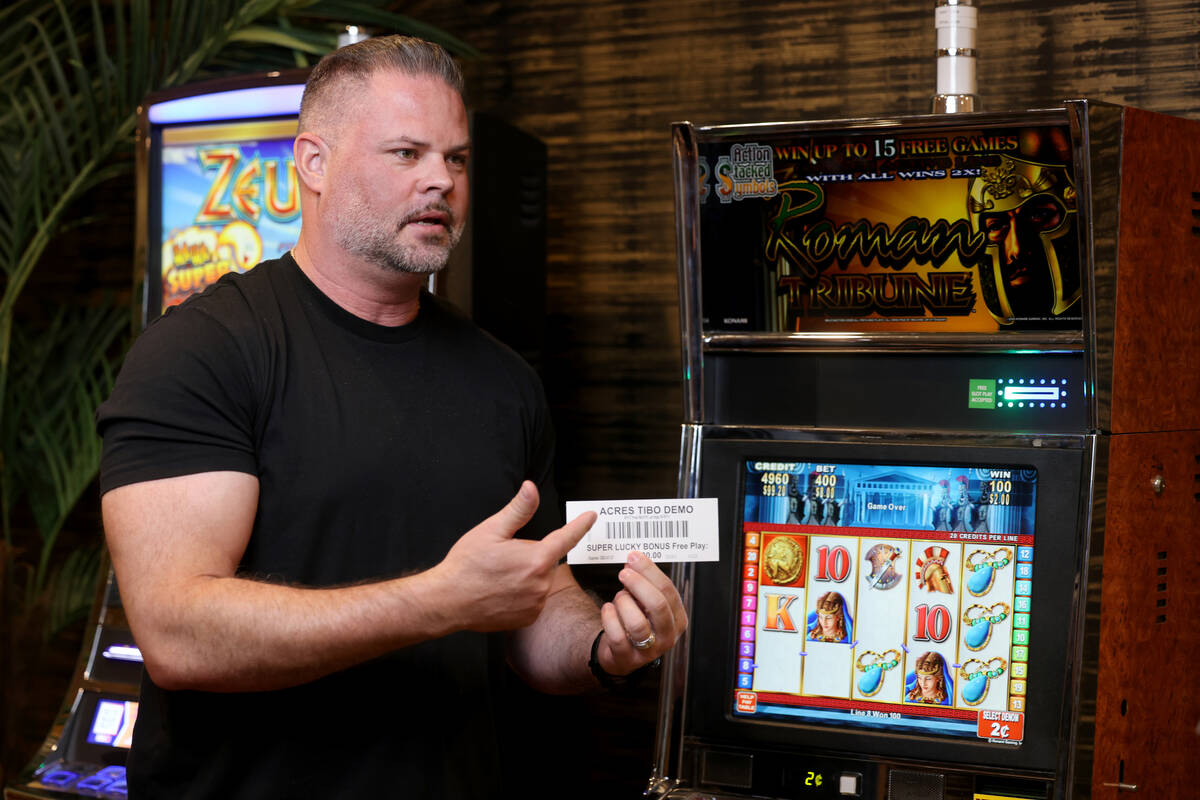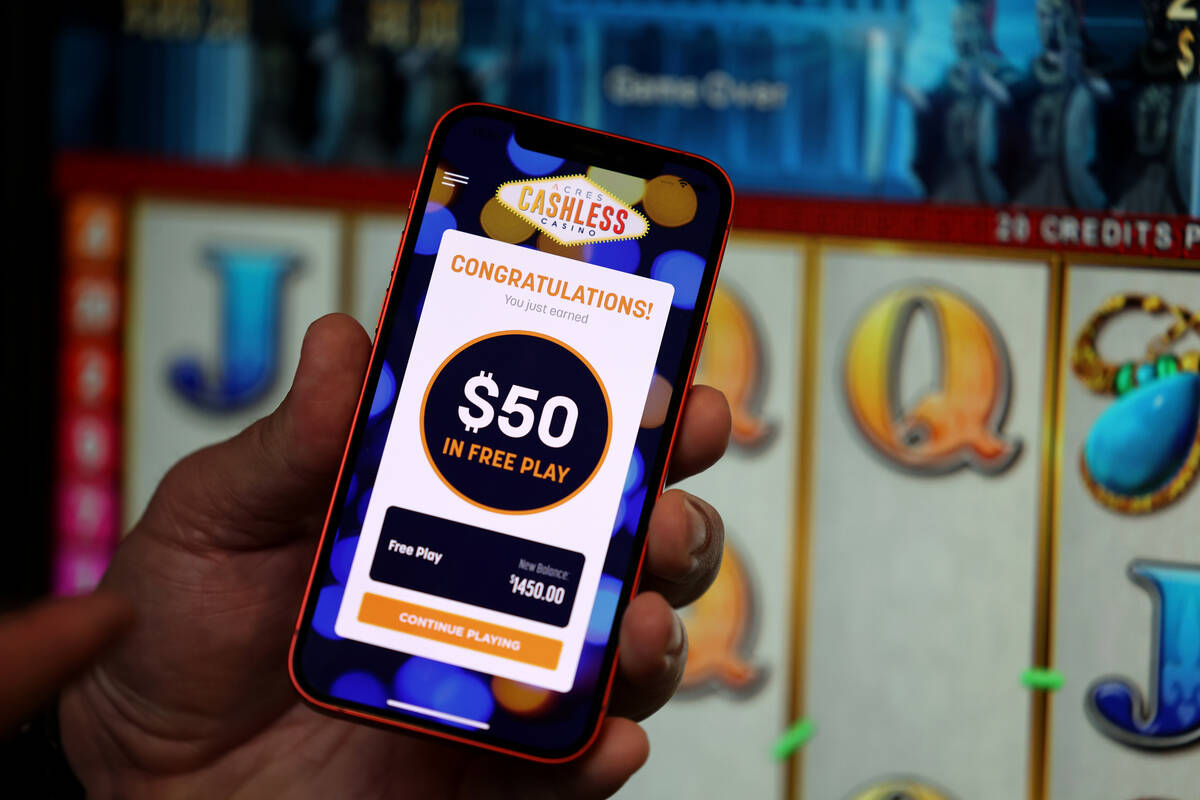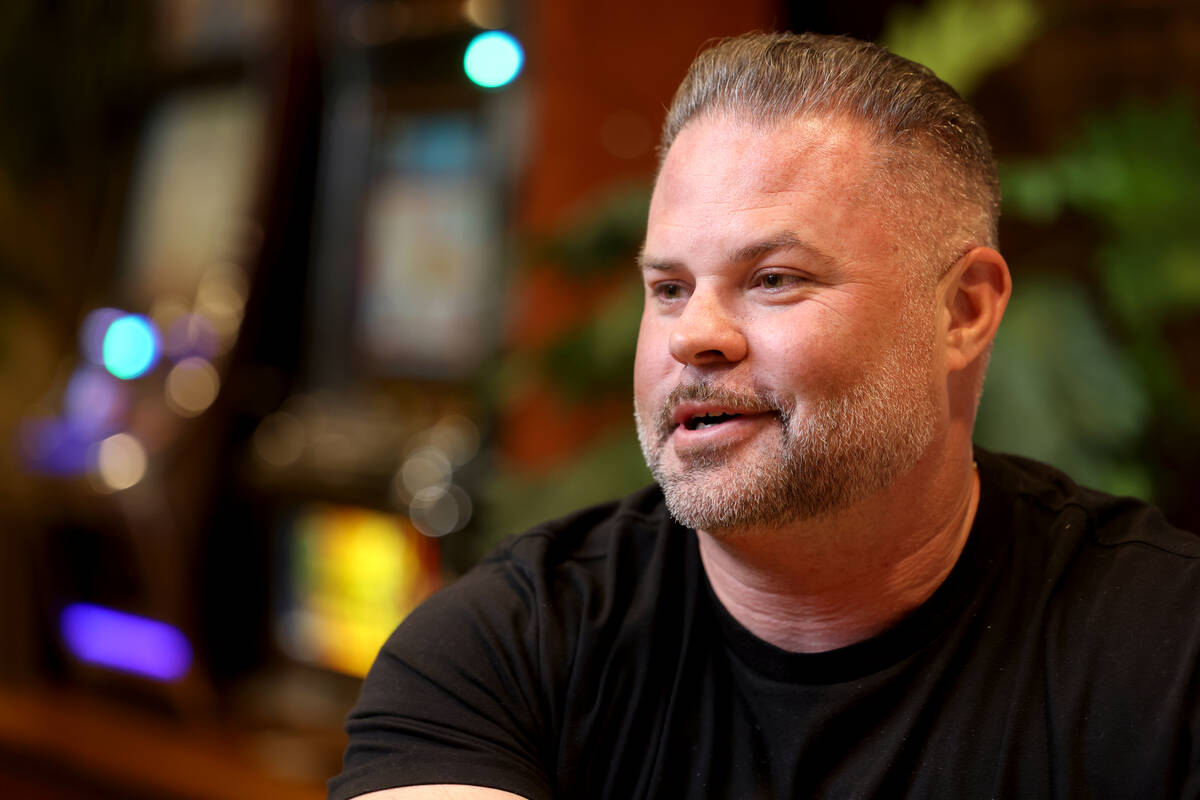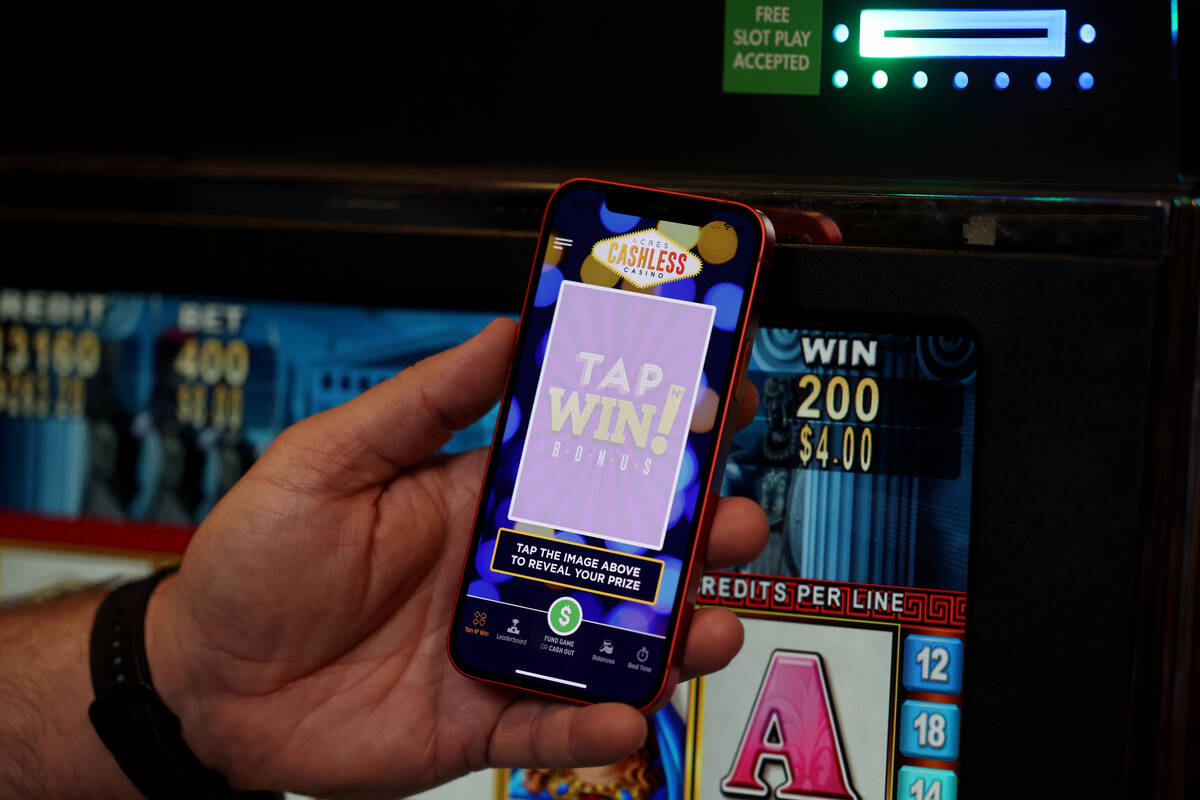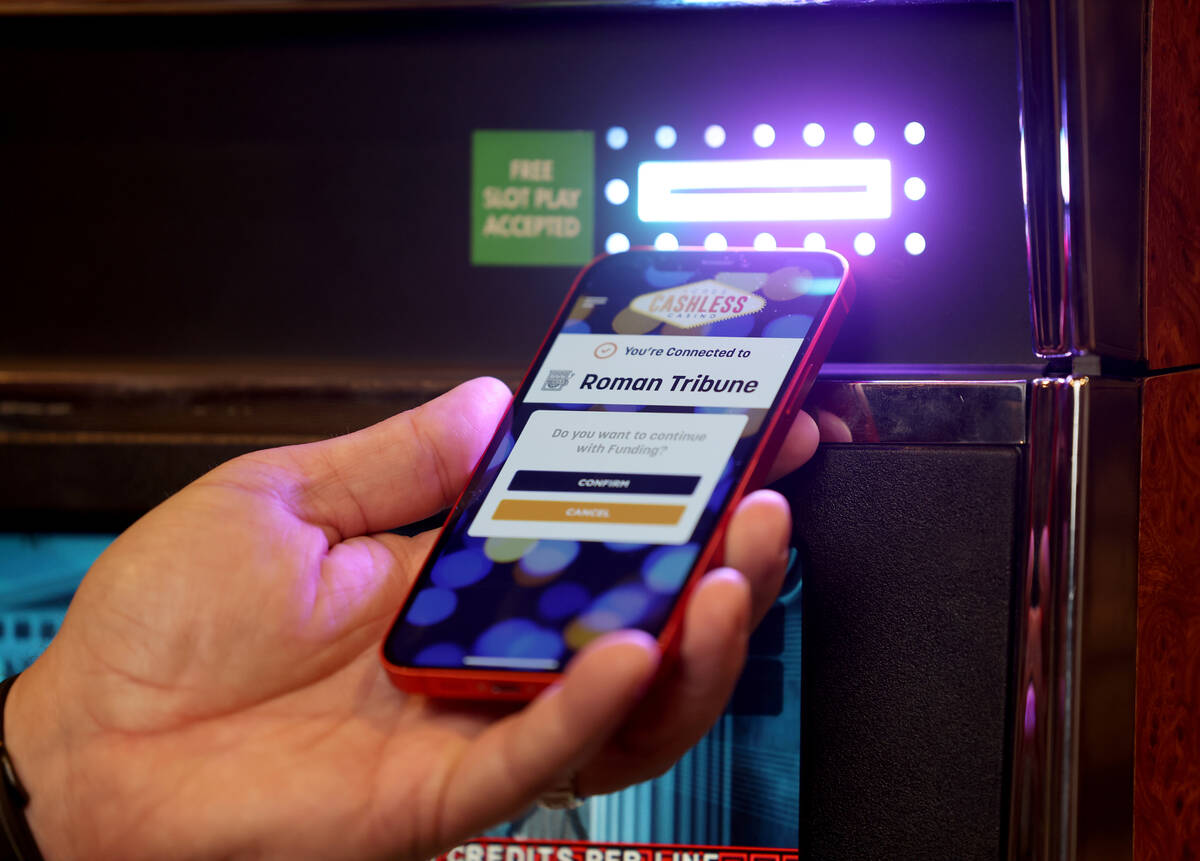‘Ticket in, bonus out’ could increase casino slot machine revenue
If you’re a regular slot machine player, you know about “ticket in, ticket out.”
You feed bills into the machine for credits, you play, and when you’re all done and want to cash out, you press a button that manufactures a ticket showing how much you have. That ticket can either be cashed in at a casino cage or kiosk or fed right back into another machine.
Now, a Las Vegas company is taking “ticket in, ticket out,” or “TITO,” to a new level. And, while the concept could dramatically increase slot machine revenue, it could also raise the hackles of responsible gaming advocates.
John and Noah Acres of Acres Technology are field testing “ticket in, bonus out,” or “TIBO,” and plan to market it to be on casino floors by early next year.
Eric Persson, CEO of Maverick Gaming, which operates the Gold Country Inn & Casino in Elko where the field trial is being conducted, said TIBO has passed laboratory tests but hasn’t gone live in the casino yet, so there’s no indication how players are reacting to it.
The difference between TITO and TIBO is that the new system uses predictive technology to determine when gamblers are nearing the end of their time playing. Then, just as that time occurs, the system will distribute a ticket to customers encouraging them to continue playing with free bonus spins on the machine.
“To me, TIBO and cashless gaming and all of the other things we’ve been talking about are all incorporating real-time connectivity to the player experience,” Noah Acres said in an interview at the company’s southwest Las Vegas headquarters.
Real-time personalization
“It’s real-time personalization,” he explained. “Amazon knows my preferences, Netflix knows my preferences. The gaming floor should be the same.”
Acres explained that people love to talk about the times they hit it big in a casino. He figures that if the casino can acknowledge players when they hit it big and console them when they’re on an unlucky streak, the relationship between the player and the casino can be enhanced.
John and Noah Acres are a father-and-son team that has been working on finding ways to increase casino play since the 1990s, when John Acres formed Acres Gaming. Before that, the elder Acres was a partner in 1986 with Mike Stone in Mikohn Gaming, which developed branded slot machines, gaming management systems and progressive jackpot systems. The company eventually became known as Progressive Gaming International Corp., went public on the Nasdaq exchange, but fell victim to the Great Recession and went bankrupt in 2009.
Through his work with Mikohn, PGIC and Acres Gaming, John Acres built a reputation for developing transformative technology in cashless casino products and using captured data and loyalty programs to customize a customer’s casino experience. His efforts landed him in the American Gaming Association’s Gaming Hall of Fame in 2016.
Acres sees industry underperforming
Acres is convinced that though the gaming industry has put up some gaudy revenue numbers in the past two decades, it’s still underperforming.
“We need to modify the gaming experience to grow the industry,” Noah Acres said. “The industry, despite a lot of the cheerleading headlines, is down over the last 15 years. We know that 70-plus percent of players are over the age of 55 and there’s a significant percentage of players that are over the age of 70. So if we don’t modernize the offering soon to grow a new player base and new revenues, are we going to go the way of horseracing and some of the other verticals that have gone away? To me, TIBO and cashless and all of the other things we’ve been talking about are all incorporating real-time connectivity to the player experience.”
The Acres bonusing system not only can reward players who are down on their luck, but it can be programmed to reward them based on other preferences and events.
It’s your birthday? Reward. It’s the anniversary date for joining the casino loyalty program? Reward. You’re a fan of the Vegas Golden Knights and they just scored a goal? Reward. A casino with the TIBO system will be able to program any kind of reward protocol.
Other casino rewards
Rewards can also be in the form of special offers to other casino events, such as restaurant discounts and deals for entertainment events in the showroom.
The rewards can be so personalized that a player can be addressed by name.
“It gives us the opportunity to communicate with the player because we can print out a piece of paper with a custom message on it and we can bonus a player by giving them rewards of value, and that value could be cashable,” Acres said.
Because of those personalized bonuses, the Acres team is betting on TIBO becoming an incentive for people to sign up for a casino’s loyalty program.
But the biggest opportunity may be efforts to keep players playing. That’s also where responsible gaming advocates may have a problem.
Amanda Blackford, director of operations and problem gambling services for the Ohio Casino Control Commission, recently addressed responsible gaming tactics in a panel at the National Council of Legislators from Gaming States in Denver and was told by a reporter about the TIBO system.
‘It’s concerning to me’
“It (the system) extends the play, that’s one of the big risk factors for folks that they become enabled,” Blackford said. “If they get a bonus, that could be incredibly damaging because they think there’s something special about them, they think they’re super lucky, they deserve this, and that can send them into a real tailspin, so that is concerning to me.”
Alan Feldman, a distinguished fellow at the UNLV International Gaming Institute and chair emeritus of the International Center for Responsible Gaming, said he can see why some responsible gaming advocates could find TIBO problematic. But he has faith in Acres based on his track record.
Feldman admitted he doesn’t know all the details of the system but would like to research how it works and how it would play in the responsible gaming landscape.
Delayed reward?
He said one feature that could be more palatable to responsible gaming advocates would be for a bonus ticket to have a delayed reward.
“This is very, very common in retail, where you make a purchase and they give you something, like Kohl’s,” Feldman said. “They give you ‘Kohl’s cash.’ It’s not good today, but it’s good two days or four days from now.”
But Feldman admitted there may be no problems at all.
“Just doing something like this may have no implications on responsible gambling because, yes, it is an incentive to continue, but until it’s in the field and we start testing and we take a look at it, we may find that you’re given another five credits and if you lose it, it isn’t inducing negative behavior.”
“Thinking of myself for a moment, I’ll get down to whatever it is I budgeted, and it could be $40, and I’m done. Now, if the machine spit out a ticket for five more credits or whatever, yeah, I’d play them. But I’m still done.”
Contact Richard N. Velotta at rvelotta@reviewjournal.com or 702-477-3893. Follow @RickVelotta on Twitter.



